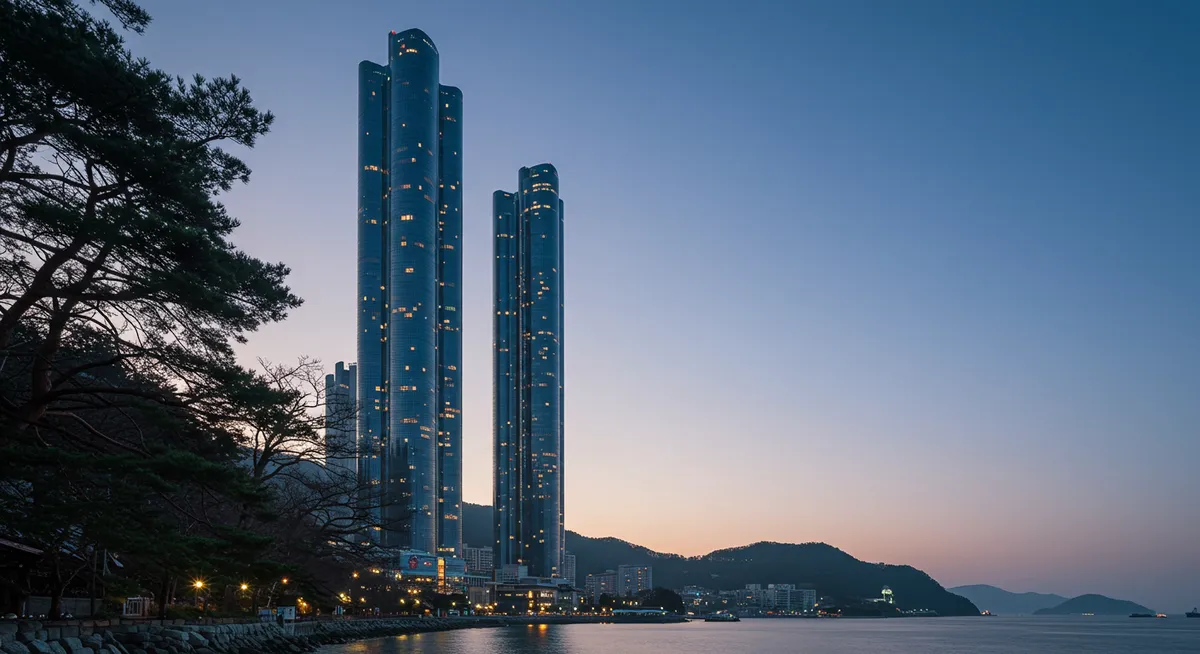
Best Time to Visit Busan: Your Seasonal Guide
Table of Contents
Want to find the best travel deals for this destination? Chat with our travel hacking specialist!
Get Travel HacksCategory: best-time-to-visit-busan
Your Ultimate Guide to the Best Time to Visit Busan
Having explored its vibrant markets, serene temples, and stunning coastal landscapes multiple times, I can confidently say Busan is a city that truly offers something unique in every season. However, understanding the best time to visit Busan can transform your trip from good to unforgettable, ensuring you catch the city at its peak for your specific interests. From cherry blossom springs to sun-drenched summers, and crisp autumns to cozy winters, this guide will help you pinpoint the ideal period for your South Korean adventure.
Spring (March-May): Cherry Blossoms & Mild Weather
Spring is arguably the best time to visit Busan for many travelers, primarily due to its pleasant weather and stunning cherry blossoms. Temperatures are mild, typically ranging from 10°C to 20°C (50-68°F), making it comfortable for exploring the city's many attractions without the intense heat or cold. The air is fresh, and rain is usually moderate. Furthermore, Busan bursts into a spectacular display of pink and white, especially around Oncheoncheon Stream and Samnak Eco Park, creating picturesque scenes ideal for photography. My personal tip: visit in early April for the peak cherry blossom spectacle. This season is perfect for leisurely strolls and outdoor sightseeing, offering a truly enchanting experience as you navigate Busan's wonders.
Autumn (September-November): Crisp Air & Fall Foliage
Another prime period often considered the best time to visit Busan is autumn. Following the summer heat, the city enjoys crisp, clear skies and comfortable temperatures, usually between 15°C and 25°C (59-77°F). This season is renowned for its breathtaking fall foliage, with mountains like Geumjeongsan transforming into a tapestry of red, orange, and gold. It's an excellent time for hiking, exploring cultural sites, and simply enjoying the city's vibrant atmosphere without the summer crowds. There’s a noticeable lack of humidity, making outdoor activities particularly enjoyable. For those wondering what to do in Busan during this period, engaging in a temple visit or coastal walk is highly recommended.
Summer (June-August): Beach Vibes & Festivals
Summer in Busan is synonymous with lively beach scenes and exciting festivals, making it an appealing if slightly warm period for some. While temperatures can be hot and humid, ranging from 25°C to 30°C (77-86°F), it's the peak season for enjoying Busan's famous beaches like Haeundae and Gwangalli. The city comes alive with outdoor concerts, water sports, and fireworks displays. If you love bustling atmospheres and don't mind the heat, this is the time to experience Busan's energetic side. Be aware that this is also the busiest tourist season, so expect larger crowds and higher prices for accommodation and activities. Planning a 3-day Busan itinerary during summer would certainly include beach time.
Winter (December-February): Festive Lights & Cozy Charm
For those seeking a quieter, more reflective trip, winter can be a surprisingly good time to visit Busan. Temperatures can drop below freezing, especially in January, with averages between 0°C to 8°C (32-46°F), but snow is rare. The city twinkles with festive lights, particularly during the Busan Christmas Tree Festival in Nampo-dong, creating a magical ambiance. Crowds are significantly thinner, allowing for a more intimate experience at popular attractions. It’s the perfect season for enjoying Busan’s hot springs, indulging in hearty local cuisine, and exploring cozy cafes. You might even find better deals on hotels in Busan during this off-peak season.
Factors to Consider for Your Busan Trip
When deciding the best time to visit Busan, consider more than just the weather. Your budget can significantly influence your choice; off-peak seasons like winter and late spring/early autumn often present better deals on flights and accommodation. Furthermore, specific interests, such as attending unique festivals or enjoying particular outdoor activities, will guide your decision. For instance, the Busan International Film Festival in October draws huge crowds, impacting prices and availability. Conversely, if avoiding crowds is a priority, then late autumn or early spring offers a more relaxed experience. Ultimately, Busan's charm can be appreciated year-round, so tailor your visit to your personal travel style. For comprehensive planning, consult a broader Asia travel guide.
Frequently Asked Questions
When is Busan cheapest to visit?
What are the busiest times in Busan?
Are there typhoons in Busan?
Ultimately, the best time to visit Busan largely depends on your personal preferences and what you hope to experience. Whether you're drawn to the vibrant cherry blossoms of spring, the sun-soaked beaches of summer, the crisp foliage of autumn, or the festive tranquility of winter, Busan offers a unique appeal throughout the year. Plan your trip with these seasonal insights in mind to ensure your South Korean coastal adventure is everything you dreamed of and more. Don't hesitate to dive into planning your Busan getaway and discover its charm for yourself!